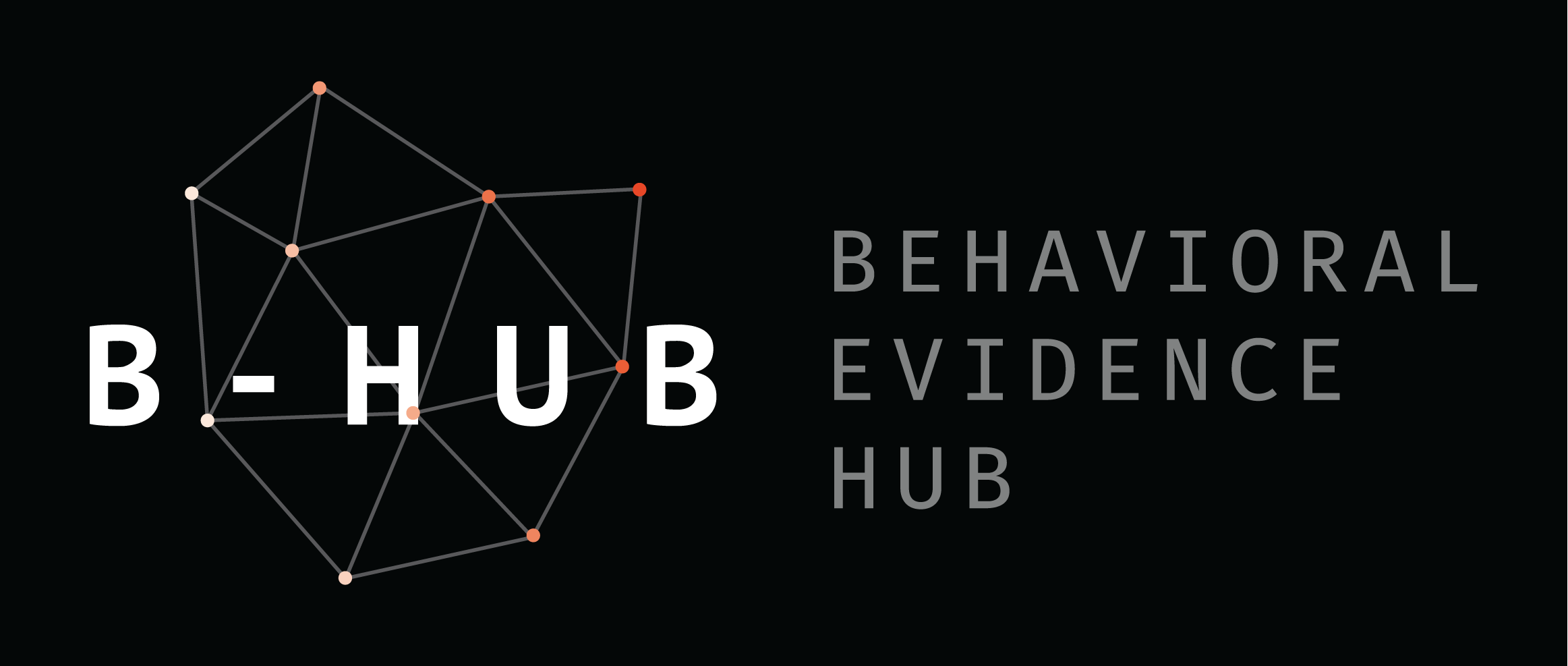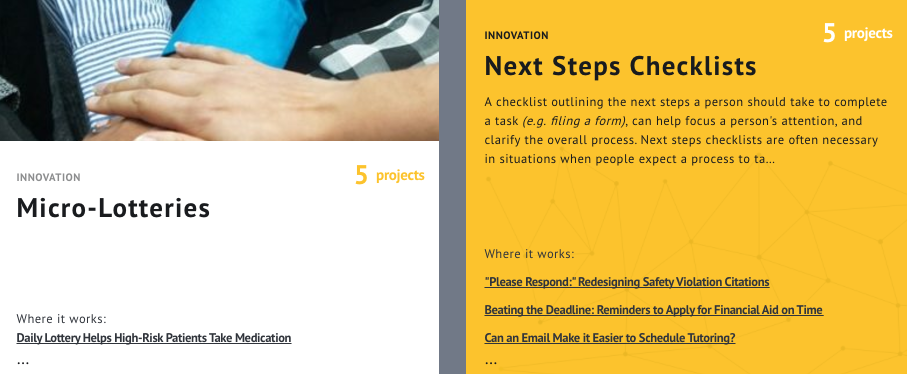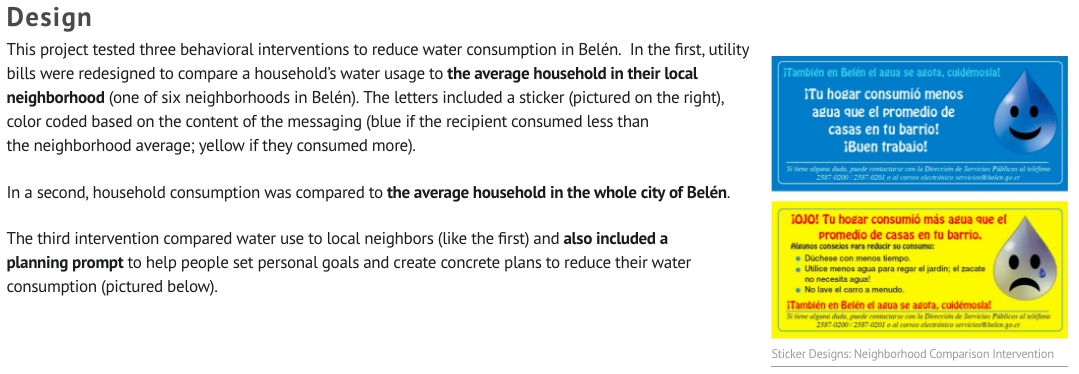Got Behavioral Science Results? Help Us Build a Resource for All
Editor's note: This is a cross-posting with ideas42, IPA's partner in the Behavioral Evidence Hub project.
By Liana Johnson of ideas42

It’s been more than three months since the launch of the Behavioral Evidence Hub, a community-driven collection of behavioral interventions proven to create impact. Jointly launched by Innovations for Poverty Action (IPA), the University of Pennsylvania Center for Health Incentives and Behavioral Economics (CHIBE), and ideas42, the B-Hub (as it’s affectionately called) has been visited by people in more than 125 countries since May. We’ve also published even more projects by more contributors and added new domains to accommodate the diversity of interventions submitted.
So, what’s next? That’s where you come in.
If you build it they will come…so we did.
As a community-driven resource, the B-Hub relies on contributions from a myriad of people in order to offer the most comprehensive collection of designs and guidelines out there. Valuable behavioral insights are often buried in academic journals or behind paywalls where many people who could harness them for social impact may never lay eyes on them. The B-Hub is a space we carved out to gather findings into a single resource for applied behavioral science strategies, sharing actionable guidelines between those who do experimental work and those seeking proven, innovative solutions.
Problem-solvers from around the world come to the B-Hub to browse usable strategies for tackling any number of pervasive problems in a wide range of domains such as financial wellbeing, college completion, and long-term health. Contributors maintain the resource’s continuous growth while expanding the reach of their work by putting results in front of a wider audience of practitioners.

Work published on the B-Hub is tagged by domain, location, and other relevant categories.
Who can submit to The B-Hub?
Everyone is invited to submit content that meets the eligibility requirements. The B-Hub currently includes work from a variety of different partners, including individual academic researchers, governments, nonprofits and NGOs.
Is my research or project eligible?
There are four key attributes that tie all B-Hub entries together. Everything published on the B-Hub is:
- Behavioral. At its core, the B-Hub is all about human behavior
- Applicable. We want studies that can be applied somewhere else
- Rigorous. The most reliable solutions are tested with trusted experimental methodology
- Effective. It has to work. Tests should show a statistically significant quantitative effect
What is the commitment?
First, fill out the submission form. After you submit it, a member of the B-Hub team will reach out for more details about the work you want to publish. If it meets the requirements above, the next step will be to complete a brief write-up of your work, including details about the challenge you faced, the design you created, the impact it had, and any implementation guidelines you can offer to others.

Design details of a project on the B-Hub
Project pages are usually between 700-1500 words. While researchers will take the lead on writing their own summaries, the B-Hub editorial team will provide support as necessary—because we don’t want hassle factors to get in the way of sharing your insights with the world.
Why does my contribution to the B-Hub matter?
We know overloading people with generalized information won’t inspire action. That’s why B-Hub visitors are guided through each project step-by-step, including details on the context of the problem tackled, specifics and visuals from the designs, and guidelines from the original researchers and/or implementers on how the solution was carried out. Although what works in one context isn’t guaranteed to lead to success in another, collecting real-world examples in an open-source, community resource can lead to their adaptation to new situations—and new lessons learned.
The B-Hub does more than bring behavioral findings into the real world. It is a database of what works and how for practitioners, and it is an accessible platform outside of journals for researchers to disseminate findings seamlessly with other problem-solvers across the globe. More connection equals more knowledge sharing, which equals more social good.
Have more questions about the B-Hub? Email info@bhub.org.












